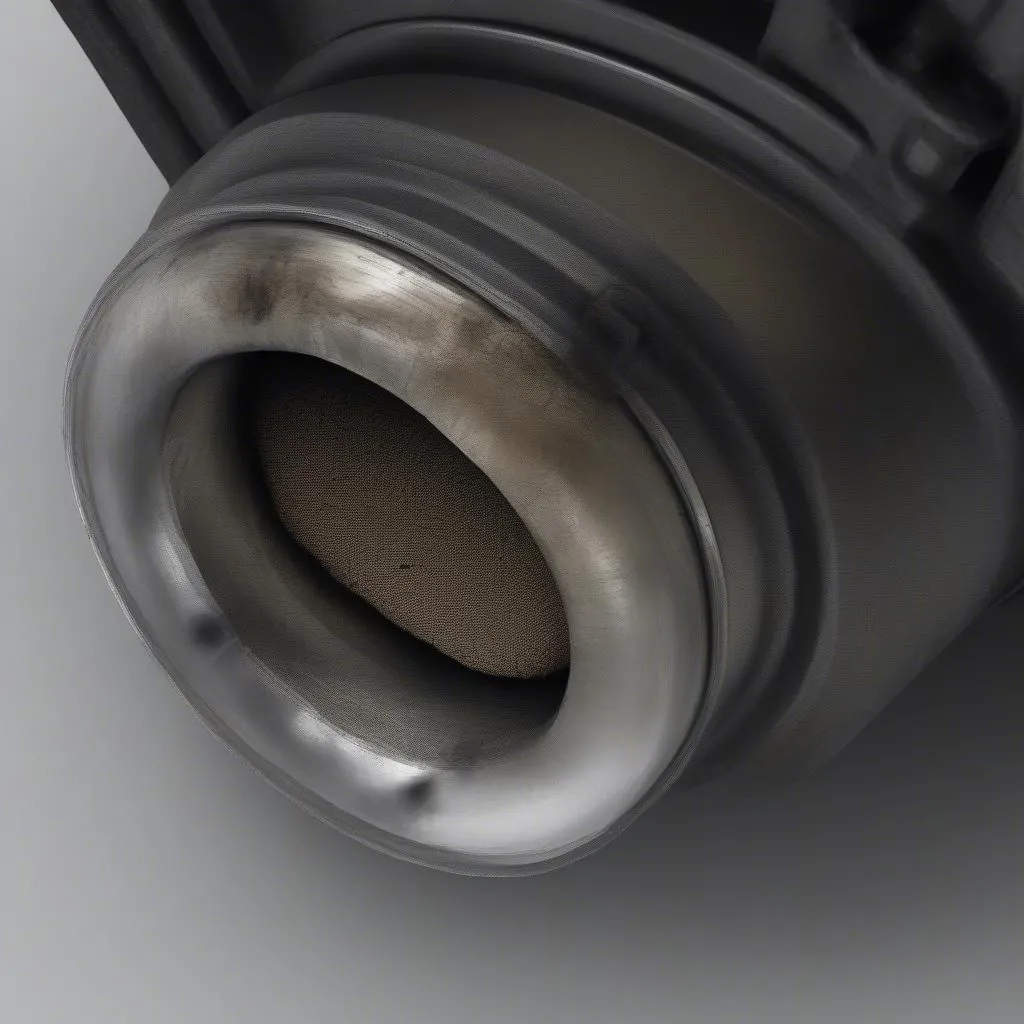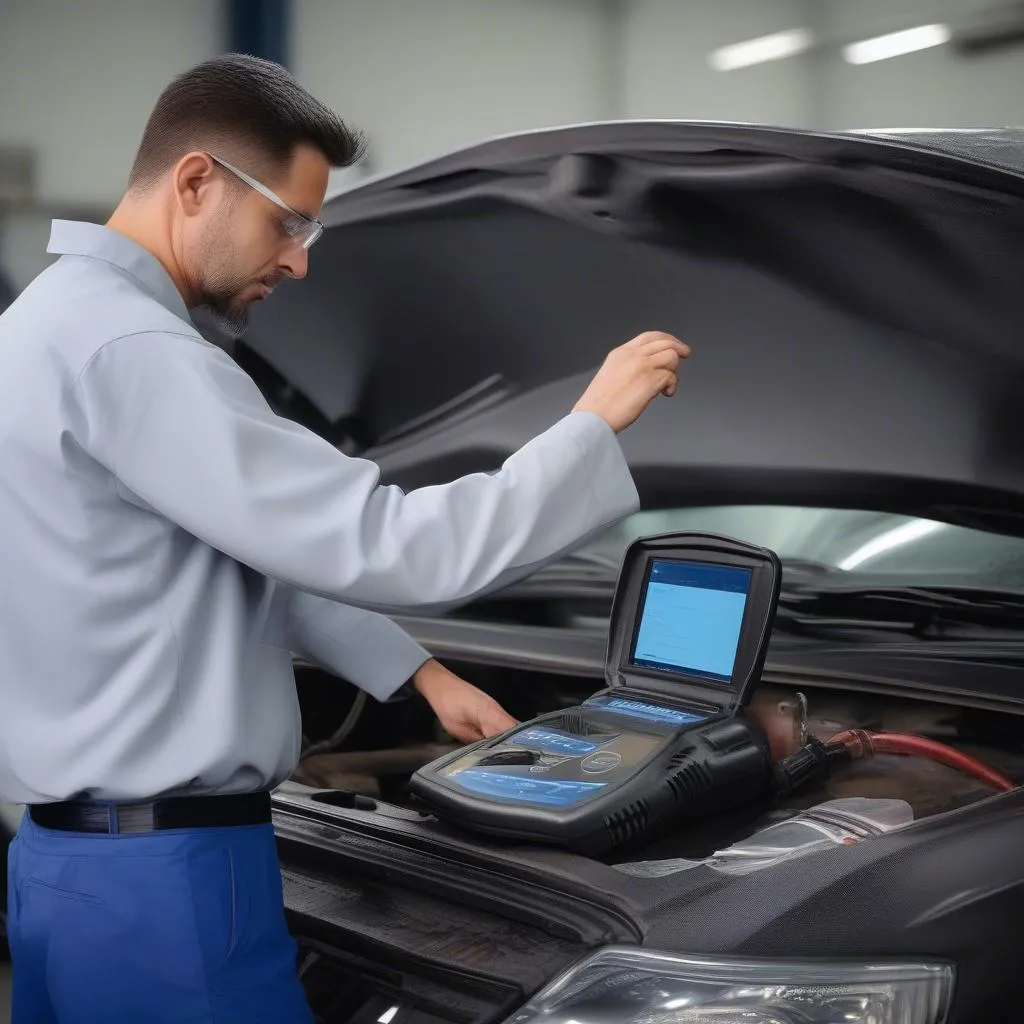Imagine this: you’re cruising down the Pacific Coast Highway, California sun warming your face, the radio blasting your favorite road trip playlist. Suddenly, that dreaded check engine light pops up on your dashboard, casting a shadow over your idyllic drive. You pull into a gas station, and a quick scan with your OBD-II reader reveals the cryptic message: “code P2002.” What does it mean? Is your California dream trip about to turn into a mechanical nightmare?
Don’t panic just yet! Understanding OBD codes is like deciphering a secret language your car uses to communicate. This article will demystify “code P2002,” explaining what it means, why it happens, and what you can do about it.
P2002: A Red Flag for Your Diesel Engine
In the world of automotive diagnostics, the code P2002 signifies a problem with the Diesel Particulate Filter (DPF) efficiency in bank 1. Let’s break this down:
- Diesel Particulate Filter (DPF): This crucial component in modern diesel vehicles traps harmful soot particles from the exhaust gas, preventing them from polluting the environment.
- Bank 1: Refers to the engine bank where cylinder number one is located. In a V engine configuration (like a V6 or V8), you have two separate cylinder banks.
Essentially, code P2002 indicates that the DPF on bank 1 isn’t cleaning the exhaust gases as efficiently as it should.
Why Should You Care About P2002?
Ignoring this code can lead to:
- Reduced Engine Performance: A clogged DPF restricts exhaust flow, which can lead to decreased engine power, poor acceleration, and even stalling.
- Increased Emissions: A malfunctioning DPF can result in higher emissions, impacting both the environment and potentially causing your vehicle to fail emissions tests.
- Costly Repairs: If ignored, a P2002 issue can escalate, potentially requiring expensive DPF replacement or other engine repairs.
What Causes OBD Code P2002?
Several culprits can trigger the P2002 code, including:
- Clogged DPF: The most common culprit, often caused by frequent short trips that prevent the DPF from reaching its optimal operating temperature for regeneration (the self-cleaning process).
- Faulty DPF Pressure Sensor: This sensor monitors the pressure difference across the DPF, and a faulty sensor can send inaccurate readings, triggering the code.
- DPF Regeneration Problems: Issues with the regeneration process itself, possibly due to a faulty temperature sensor or other related components.
- Exhaust Leaks: Leaks in the exhaust system can disrupt the pressure differential readings, leading to a false P2002 code.
Troubleshooting and Fixing P2002
Resolving P2002 requires a systematic approach. Here’s a possible path to diagnosis and repair:
- Verify the Code: Ensure the code is genuine and not a sporadic error. Clear the code and see if it returns.
- Inspect for Obvious Issues: Check for visible exhaust leaks, loose connections, or damaged wiring related to the DPF system.
- Check DPF Pressure Sensor: A mechanic can test the sensor’s functionality and replace it if faulty.
- Forced DPF Regeneration: A mechanic can initiate a forced DPF regeneration using a professional-grade scan tool. This process burns off accumulated soot in a controlled environment.
- DPF Cleaning or Replacement: If the DPF is excessively clogged, professional cleaning or replacement might be necessary.
Remember, while online resources offer helpful information, diagnosing and repairing complex engine systems often requires the expertise of a qualified mechanic.
 Clogged Diesel Particulate Filter
Clogged Diesel Particulate Filter
Have You Encountered These Codes Too?
- P2003: Similar to P2002 but for Bank 2.
- P242F: Indicates a problem with the DPF restriction.
- P2463: Signals excessive soot accumulation in the DPF.
Understanding these codes can empower you to address your diesel engine’s health proactively.
Need Expert Help with Your Car Troubles?
Dealing with OBD codes and complex car problems can be overwhelming. At Tech Car USA, we’re here to help! Our team of expert mechanics specializes in diagnosing and repairing European car issues, including those pesky OBD codes.
Contact us on WhatsApp at +84767531508 for 24/7 support. Whether you need help deciphering a code, scheduling a diagnostic appointment, or simply seeking expert advice, we’re just a message away.
Don’t let car troubles ruin your journey. Get in touch, and let’s get your car back on track!
Explore More:
- Common EU OBD Codes for Diesel Engines
- Case Study: 2017 Range Rover OBD Code P2002
- Understanding OBD Code P2200C1
 Mechanic Using a Diagnostic Tool
Mechanic Using a Diagnostic Tool